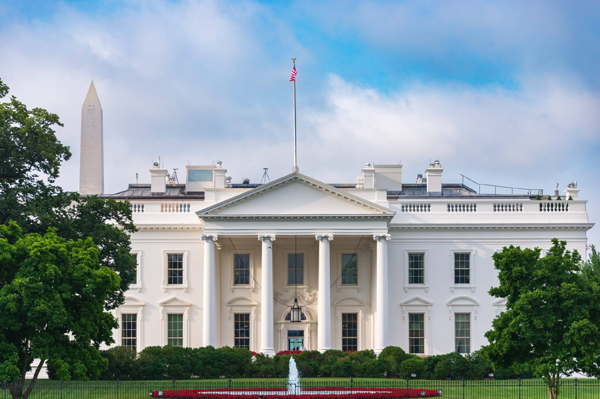Behind the scenes of the White House Crypto Summit, 5 closed-door proposals you didn't know about

The main content of the White House Cryptocurrency Summit proposed several policy recommendations. Former CFTC Chairman Giancarlo suggested restoring the concept of private armed ships 200 years ago, allowing the government to authorize hackers to fight foreign cyber attacks, Michael Saylor advocated that the United States should buy 5%-25% of the Bitcoin supply and directly become a super-large household, Paradigm's Matt Huang spoke for Tornado Cash developers, and Tenev promoted the tokenization of financial assets.
Before the first White House Cryptocurrency Summit on March 7, participants had the opportunity to make realistic cryptocurrency policy recommendations to the White House's cryptocurrency team and top regulators.
President Trump himself did not participate in the discussion, but only attended the broadcast portion of the summit for the first 30 minutes.
However, Beau Heins, executive director of the White House Digital Asset Advisory Committee, Treasury Secretary Scott Bessant, Securities and Exchange Commission Commissioner Hester Pierce, Commodity Futures Trading Commission Acting Chairman Carolyn Fan, U.S. Small Business Administration Director Kelly Loeffler and House Majority Whip Tom Emmer all attended this part of the event, an attendee revealed.
Specifically, Sachs asked what new policy topics the White House should focus on. While information about attendees’ specific requests is confidential, Unchained has learned that five proposals were submitted for consideration.
Former CFTC Chairman Chris Giancarlo: Privatizing White Hat Hackers
Former CFTC Chairman Chris Giancarlo, the only delegate to the summit during Trump’s first term, suggested that the U.S. government reinstate the Letters of Marque and Reprisal Act, effectively allowing private companies to conduct hacking attacks on foreign adversaries on the U.S. government’s behalf, as Giancarlo explained to Unchained. These companies, referred to as PRVs in the bill, would receive licenses from the U.S. government to take actions to seize property from foreign adversaries, such as the more than $6 billion stolen by North Korean state-sponsored hacking group Lazarus.
The last time Congress granted such licenses was more than 200 years ago, when they were issued to merchant ships that encouraged the robbery of foreign adversary ships, such as British Royal Navy ships. At that time, PRVs were required to report their seized property to the U.S. government, even though piracy was a serious problem.
According to attendees, Minister Bessent requested an editorial that Giancarlo and CoinFund Managing Partner and President Chris Perkins published on Cointelegraph that mentioned this topic.
Michael Saylor, Co-Founder of Strategy: Buying Bitcoin in Bulk
Michael Saylor proposed during the summit that the U.S. should buy more Bitcoin — and a lot of it. As first reported by CoinDesk, Saylor told attendees that he wants the U.S. to acquire 5% to 25% of the total supply of Bitcoin over the next 20 years, or about 1,050,000 to 5,250,000 Bitcoins. Currently, that many Bitcoins are worth between $83 billion and $417 billion.
Saylor’s proposal is clearly more ambitious than the Bitcoin Act, recently reintroduced by Senator Loomis, which proposes that the U.S. acquire 1 million Bitcoins, or about 5% of the total supply, over the same time frame as Saylor’s proposal. In the last Congress, Loomis struggled to get the Bitcoin Act through committee, but support within the Republican Party was not strong enough, in addition to a split Congress. The proposal for a government to acquire Bitcoin has also been criticized as being contrary to the libertarian ideals behind Bitcoin's creation, while a single entity owning such a large proportion of the supply would lead to greater concentration.
Legal experts say that if the U.S. government uses federal funds to buy Bitcoin (rather than adopting a budget-neutral strategy, as the president has pledged in his executive order to establish a reserve fund), it may require congressional approval because Congress holds fiscal spending power under the Constitution - although some Bitcoin advocacy groups have drafted potential executive orders that ostensibly identify possible loopholes that would allow the executive branch to take such action.
According to CoinDesk's report and photos of Saylor's notes posted on social media, he also proposed dividing cryptocurrencies into four categories: tokens backed by specific issuers and used for capital creation, tokens backed by securities and commodities, currencies, and tokens used for capital preservation. He said adopting this taxonomy would help resolve legal uncertainties about how different types of digital assets should be regulated.
Matt Huang, Paradigm co-founder and managing partner: Justice for Roman Storm
Rather than asking the administration to consider new policies directly, Matt Huang called for attention to be focused on something the administration had deprioritized: the Justice Department’s case against Roman Storm, the U.S. developer of the cryptocurrency mixer Tornado Cash, a person briefed after the meeting said.
The Justice Department charged naturalized U.S. citizen Roman Storm with money laundering, unlicensed money transmission and sanctions violations for creating the tool, which actually provides privacy protection for users by obfuscating cryptocurrency transactions. Huang said the Justice Department should reconsider the lawsuit under the Biden administration.
Tornado Cash processed more than $2.8 billion in transactions in the six months before it was sanctioned by OFAC in August 2022, and Storm was indicted a year later. Tornado Cash is built on the Ethereum blockchain and runs automatically, without requiring developers to approve users or transactions to operate. However, the Justice Department said the developers failed to effectively intervene to prevent sanctioned entities, including the North Korean hacker group Lazarus, from using the tool.
DeFi advocates warn that holding Tornado Cash developers liable for malicious uses of their software could discourage developers from creating tools designed to protect privacy, or worse, could inhibit the development of decentralized DeFi programs altogether.
While the SEC has dropped dozens of civil cases against crypto companies, the Justice Department has held firm on the criminal case, which carries a harsher penalty.
Paradigm donated $1.25 million to Storm’s legal defense in January in preparation for his upcoming trial, which is set to begin in April. The prosecutors’ case threatens to hold software developers criminally liable for the bad deeds of third parties, which could have a chilling effect on the crypto industry and beyond, Huang said at X at the time.
David Bailey, CEO of BTCInc and Bitcoin Magazine: Urgently Buying Bitcoin
Bailey used his time at the summit to encourage the White House to use every means possible to acquire more Bitcoin. First, Bailey asked the White House’s crypto team to push for passage of the Bitcoin Act, legislation proposed by Loomis that would allow the U.S. to buy 1 million Bitcoins over the next 20 years. Bailey said this is critical because it would put the strategic bitcoin reserve into federal law that cannot be easily overturned by the next presidential administration, even if the new administration has a different view on the value of bitcoin.
Bailey also told attendees that he believes the government needs to accumulate bitcoin urgently in order to compete with other countries that have already bought bitcoin, such as El Salvador and Bhutan, as well as the bitcoin acquisitions he expects to be made elsewhere after Trump signed an executive order this month. Politicians in Germany, Brazil and Poland, for example, are considering building bitcoin reserves. He even raised the possibility of the U.S. government forming a public-private partnership with bitcoin miners, providing access to hydroelectric power in exchange for bitcoin miners contributing to the strategic bitcoin reserve.
Third, Bailey suggested that the U.S. use the strategic bitcoin reserve to issue bitcoin-backed Treasury bonds in the future. His reasoning is that debt partially backed by appreciating assets such as bitcoin could reduce the interest the U.S. government needs to pay.
Vlad Tenev, CEO of Robinhood Markets: Tokenization
Tenev focused his discussion at the summit on not just crypto tokens, but also the use of blockchain technology to tokenize traditional financial instruments, such as equity in private companies.
Tenev said that this tokenization of crypto-asset securities will provide American companies with a competitive advantage on the global stage. He said: This is good for companies because it increases possible shareholders, good for the world because people can more easily access high-quality companies, and good for entrepreneurs because they can raise capital more easily.
In addition, he mentioned that those who do not currently meet the wealth requirements to become accredited investors should be able to purchase these tokenized equity, fundamentally changing the investment dynamics in the United States and allowing ordinary people to invest in companies that have not yet gone public.
Currently, in the United States, only those with a net worth of more than $1 million or an annual income of more than $200,000 (or $300,000 with a spouse or partner) can be considered accredited investors.
In a column published earlier this year, Tenev said that these wealth-based requirements unfairly prevent ordinary people from maximizing their investments and called on the U.S. Securities and Exchange Commission to allow people to self-certify by demonstrating a deep understanding of investment risks. It is worth noting that Robinhood's application-based investment platform is designed to make investing more accessible to low- and middle-income people, and expanding the types of assets available to this user group will undoubtedly benefit it.
Outlook
Government representatives at the meeting did not commit attendees to implementing any of their recommendations. However, according to White House sources, the purpose of the summit was to solicit input and feedback from the crypto industry. The summit was a success and received positive reviews from government and industry leaders.
Google Translate









